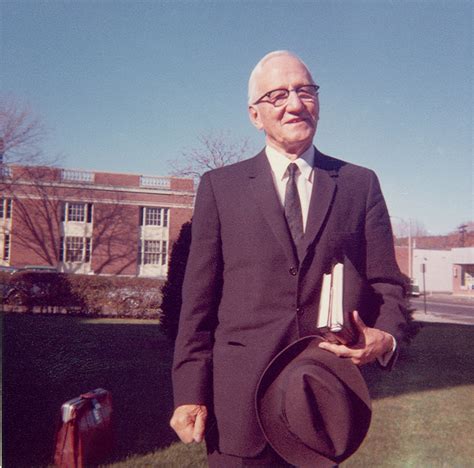A Quote by Philip Yancey
Grace is free only because the giver himself has borne the cost.
Related Quotes
In the move The Last Emperor, the young child anointed as the last emperor of China lives a magical life of luxury with a thousand eunuch servants at his command. "What happens when you do wrong?" his brother asks. "When I do wrong, someone else is punished," the boy emperor replies. To demonstrate, he breaks a jar, and one of the servants is beaten. In Christian theology, Jesus reversed that ancient pattern: when the servants erred, the King was punished. Grace is free only because the giver himself has borned the cost.
What will it cost [a person] to be a true Christian? It will cost him his self-righteousn ess. He must cast away all pride and high thoughts, and conceit of his own goodness. He must be content to go to heaven as a poor sinner, saved only by free grace, and owing all to the merit and righteousness of another.
Obedience is necessary not only for monks, but for all people. Even the Lord was obedient. The proud and self-regarding do not allow grace to live in them, and therefore they never have spiritual peace, while in the obedient soul the grace of the Holy Spirit enters easily and gives joy and peace. Whoever bears even a little grace in himself joyfully submits himself to all direction. He knows that God directs even the heavens and the netherworld, and himself, and his business, and everything in the world, and therefore he is always at peace.
If a young man gets married, and starts a family and spends the rest of his life working at a soul-destroying job, he is held up as an example of virtue and responsibility. The other type of man, living only for himself, working only for himself, doing first one thing and then another simply because he enjoys it and because he has to keep only himself, sleeping where and when he wants, and facing woman when he meets her on equal terms and not as one of a million slaves, is rejected by society. The free, unshackled man has no place in its midst.































